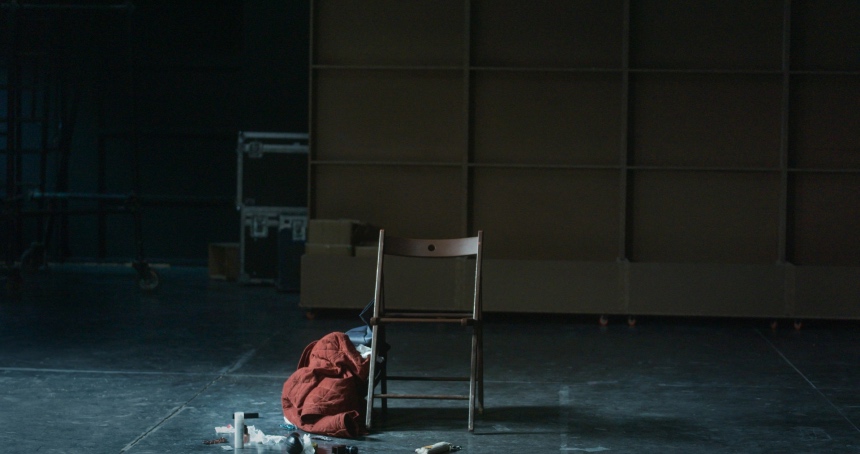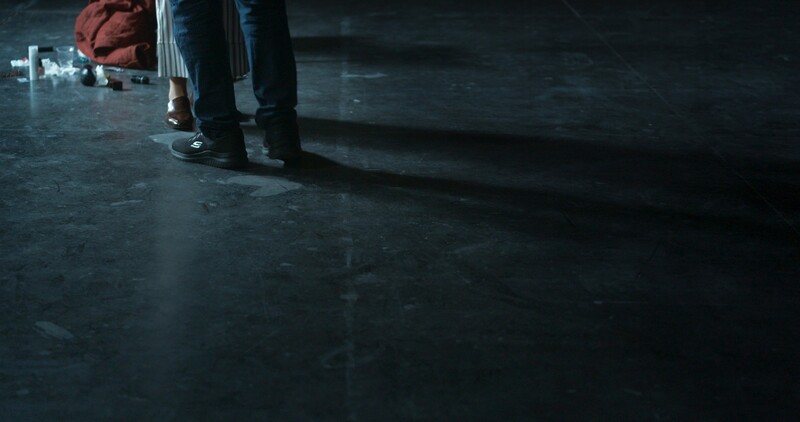Berlinale 2025 Review: 1001 FRAMES Exposes Power, Performance, and Control
Mehrnoush Alia's audition thriller examines the blurred boundaries between artistic authority and coercion in an Iranian take on a casting couch.

Iranian-American filmmaker Mehrnoush Alia makes her feature debut with 1001 Frames, a film shot clandestinely on a single soundstage in Iran. The premise is straightforward: a well-known Iranian director, played by Mohammad Aghebati, is casting for his next project, an adaptation of One Thousand and One Nights.
A group of aspiring actresses arrives for the audition, only to discover they will be performing solely for the director and his camera. Among them is his ex-wife. 1001 Frames presents an Iranian take on the casting couch, blending elements of a thriller with underlying political and social tensions.
As the audition progresses, the director’s questions grow increasingly intrusive, blurring the line between professional evaluation and voyeuristic manipulation. The women find themselves in a space where submission is framed as artistic integrity, forced to face an environment where control is exercised under the pretense of creative authority. What begins as a casting call gradually exposes the structures that determine visibility, authorship, and the precarious balance between performance and survival.
Alia has long explored the intersections of gender, power, and storytelling. Her previous short films, Faranak and Scheherazade, examine the ways women exist within and push against societal constraints, often engaging with Iranian cinema’s history of negotiating state-imposed restrictions. 1001 Frames continues this trajectory but adopts a more direct, confrontational approach.
Alia’s earlier work often alluded to the pervasive structures of power that shape women’s lives, but 1001 Frames eliminates the illusion of distance between audience and subject. The film implicates not only its director protagonist but also the broader cinematic tradition that has historically objectified and controlled women’s narratives. The confined black-box studio setting heightens the sense of entrapment, leaving no room for escape.
The film deliberately blurs the boundaries of form. Initially, it appears to be a raw casting tape, with a stationary camera passively recording informal interactions. At times, the in-film director adjusts the camera, shifting angles, zooming in on an actress’s face, reinforcing the impression of an unscripted encounter.
Only when the interactions shift to uncomfortable moments in which the director attempts to pressure and exploit the actress do the seams of the docu-illusion break, revealing the intervention of a scriptwriter in each actress’s arc.
With this shift, 1001 Frames unveils itself as a mockumentary structured like a thriller. The film scrutinizes not only the power dynamics within Iran’s film industry but also the larger patriarchal structures that extend beyond national borders.
1001 Frames functions as both a conceptual experiment and an examination of the suppression and exploitation of women within patriarchal systems. Its dialogue-driven structure unfolds through a series of confrontations between the director and the actresses, each seeking a role.
1001 Frames interrogates both cinematic and societal control over women’s bodies. Iranian cinema, long shaped by censorship, has often relied on suggestion rather than direct representation. While this has allowed filmmakers to navigate restrictive laws, it has also reinforced another form of regulation, one that dictates how and when women can be seen.
Rather than merely critiquing this tradition, Alia’s film actively dismantles it. The power dynamics are made explicit, with the audition functioning as more than a commentary on the film industry. It becomes a condensed representation of a broader reality in which women are expected to perform under male authority, whether in professional, social, or personal spaces.
What begins as an audition soon unravels into an escalating dynamic of coercion, with the in-film director’s intentions becoming increasingly transparent. As pressure mounts, so do his displays of control, manipulation, and entitlement, expressions of a toxic masculinity that has been normalized within institutional structures.
The film enjoyed its World Premiere at Berlinale 2025.









